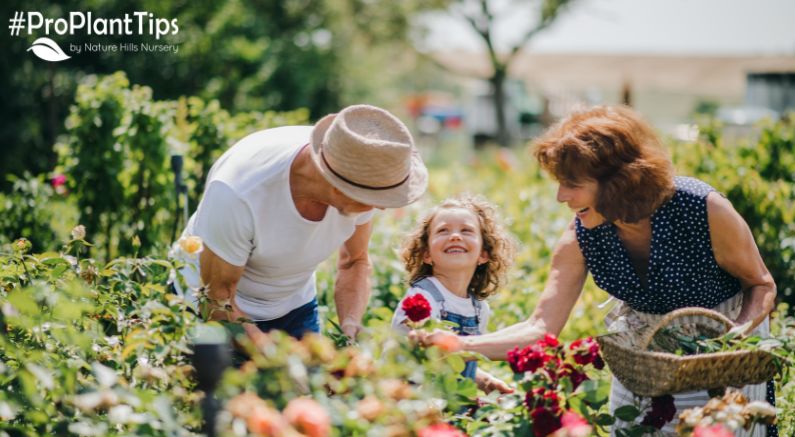Nature Hills Horticultural Staff is always happy to assist you with your gardening questions and challenges. But sometimes, customers pose location-specific questions to us that we are unable to answer. Nature Hills Nursery doesn't always have knowledge of the regional climate and soil conditions.
Because we do not want to pass on incorrect information to you, in situations such as these, we always recommend the customer contact their local Cooperative Extension Office!
The beauty of using your local Extension Office is that you will be able to access accurate information that is pertinent to your location - a great place to start!
What is a Local Cooperative Extension Office?
The Cooperative Extension System (aka County Extension Office) is a nationwide, non-credit educational network. These offices have experts available to provide locally pertinent, research-based information to farmers, small businesses, and gardeners. Whether you live in a rural area or communities of all sizes.
Started with agricultural clubs and societies in the early 1800s and was officially formed by the Smith-Lever Act in 1914, which expanded the partnership of the United States Department of Agriculture (USDA) with land-grant Universities. Initially providing farmers a resource for free advice, the CES grew to provide the public with research-based information and non-formal education.

Run by over 100 land-grant Universities and Colleges throughout the US. These publicly funded educational institutions provide research-based information about local soil, gardening and agricultural crops, pests and diseases, and landscaping tips (and so much more)!
The Master Gardener and Master Naturalist volunteers at the Extension Office and expert horticultural staff are also available! Extension Offices even coordinate local 4-H programs and horticulture-related volunteer programs.
The CES also has information booths at public events, and hosts educational events like workshops, webinars, plant clinics, and more!
What Can Your Extension Service Do For You?
Extension services vary state by state and county by county, but they can generally assist with rising to the challenges of:
- Adapting to changing technology
- Nutrition & Food
- Food safety
- Emergency prep and resources
- Spearheading environmental protection
- Gardening and horticulture
- Natural resources and management
- Composting
- Energy conservation
- Invasive plants and pests
- Identifying pests found in your home or garden
- Identifying tree diseases
- Identifying the grass and weeds in your lawn & best treatment options
- Testing your soil's pH level
- Suggesting fertilizers, fertilizer additives (lime, nitrous, etc.) & pre-emergent herbicides
- Recommend lawn treatments based on your soil's pH level & application timing
- Testing your home's water for contaminants
- Recommending plants, vegetables, and flowers
- Recommendations for your area based on the climate, soil, and weather patterns
- Information on how to properly dispose of insecticides and herbicides

Tapping into your local Extension office to help you anticipate and prevent problems in your area before they become a problem! Providing hotlines where you can call in your specific gardening questions, information online, over the phone, or paper publications and fact sheets about all of the above and more! Virtually any topic that’s relevant to home gardeners in the area!
Perhaps you live in an area that has a tough climate - because of elevation or unusual microclimate that may affect what grows well for you. In your case, the general USDA Plant Hardiness Growing Zones map may not reveal the challenges for your particular area. Use your Extension Office (Agriculture Extension Office) to tap into excellent information that can save you lots of time, frustration, and money from having the benefit of research and history of the area available to you for free.

The beauty of contacting your local Extension Office is they will be able to share with you all pertinent information for plants in your local area. They know which species or cultivars work best in the immediate area.
You may be asked to bring in a sample of the insect, soil samples, the diseased plant material, or some photos of the problem to best help the CES help you.
Tap Into Extension!
The National Pesticide Information Center has a full list of local extension offices, broken down by state, then county, or simply search for “extension office near me.” in your internet browser.
Or, click here to find your local extension office.
It’s so easy to obtain pertinent information regarding information that can affect the health of you and your garden by contacting your local Cooperative Extension Office!
As always, Nature Hills is also here to support you on your gardening adventures with helpful #ProPlantTips, an inspiring Garden Blog, and knowledgeable customer service members that are a click away!
Happy Planting!


